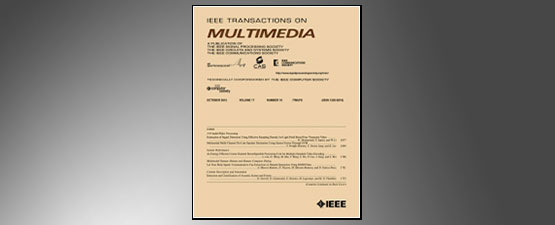Paris Smaragdis (Siebel Center for Computer Science, USA)
Lecture Date: October 25, 2016
Chapter: Atlanta
Chapter Chair: Alessio Medda
Topic: Machine Learning Approaches for Speech Enhancement

Lecture Date: October 25, 2016
Chapter: Atlanta
Chapter Chair: Alessio Medda
Topic: Machine Learning Approaches for Speech Enhancement

Large-scale Multimedia Data Retrieval, Classification, and Understanding
Manuscript Due: December 5, 2016
Publication Date: June 2017

February 19-22, 2017
Registration Deadline: February 10, 2017
Location: New Delhi, India

November 7-11, 2016
Registration Deadline: October 17, 2016
Location: Kuala Lumpur, Malaysia

November 2-4, 2016
Registration Deadline: October 20, 2016
Location: Montreal, QC, Canada
Advisor: Ahilan Kanagaundaram
Email: ahilan.eng@gmail.com
Chair: Indunil Madushan Madushanka Marasinghe
Email: indunilmadushan2@gmail.com

2017 IEEE International Workshop on Multimedia Signal Processing
October 16-18, 2017
Location: London-Luton, UK
PhD Studentship in Signal Processing Theory and Methods
Programe of Electrical Engineering, Pontifical Catholic University of Rio de Janeiro (PUC-Rio), Rio de Janeiro, Brazil
Applications are invited for a PhD studentship in signal processing techniques. This studentship is funded by the CNPq/CAPES research councils in Brazil. The topic of the project is open in the area of signal processing theory and methods. Potential topics include:
- Adaptive signal processing algorithms
- Distributed signal processing techniques

Declan O’Neill, Telecommunications Engineering undergraduate at the Dublin Institute of Technology
If you were asked the meaning of the term “signal processing,” how would you respond? I'm sure you could easily explain what processing means, but what's a signal? A signal is anything we can sense, be it a sight, a sound, the heat felt from a warm object or a draft felt rolling through a room. It could even be the shudder felt through the floor when a truck drives down your street. But when we talk about signal processing, what do we mean and where can we see it? Could we reasonably call it “the science behind our digital life?” The short answer is yes, but why?
INTRODUCTION
With over 30 years of experience delivering critical analysis and engineering expertise, Vista Research is committed to providing its customers with the innovative solutions that they require and answers they can trust. Vista specializes in the analysis of remote sensor data and the development of sophisticated signal processing algorithms to enhance signals of interest and to remove noise sources. Vista has both software and hardware engineering resources to quickly develop prototype real time systems and production solutions.